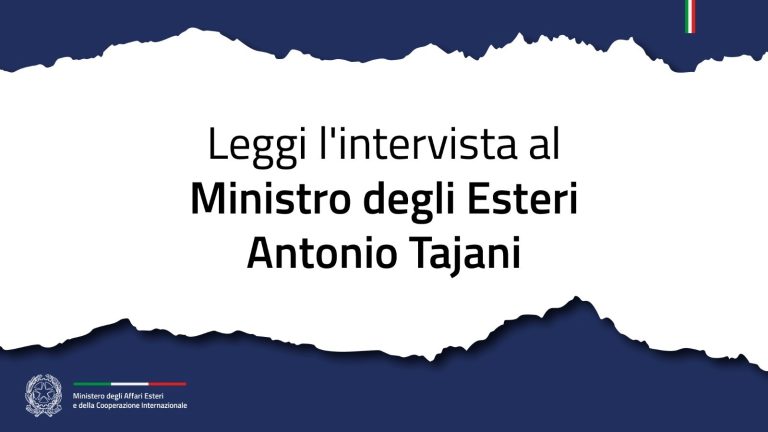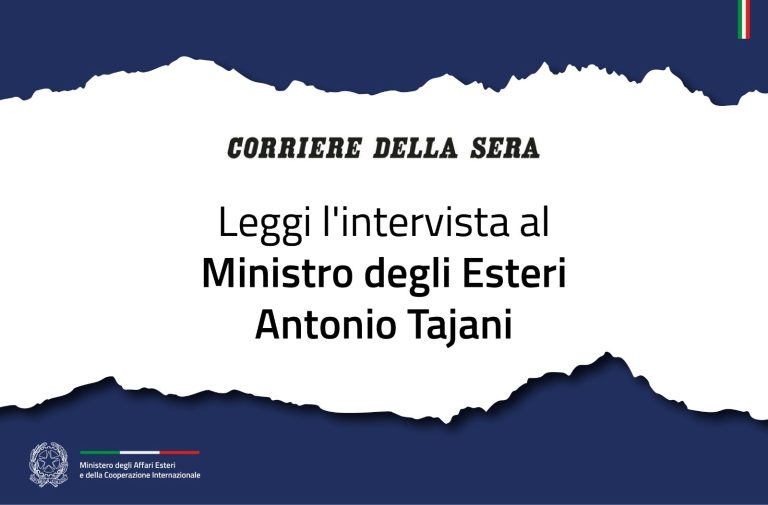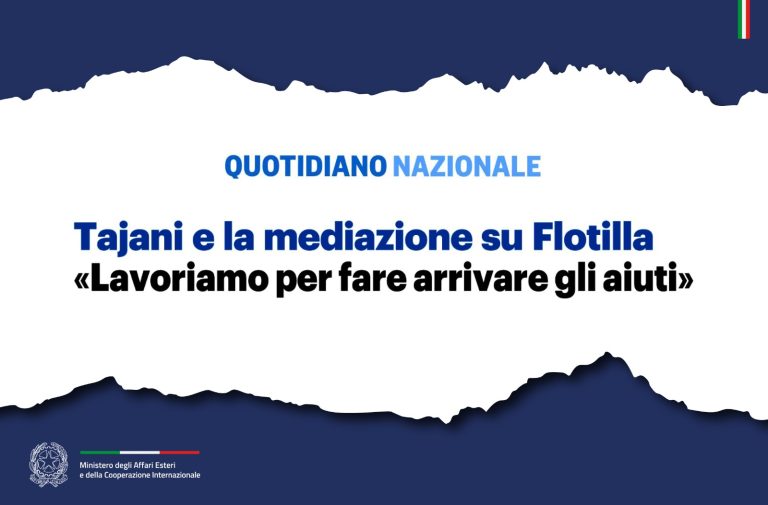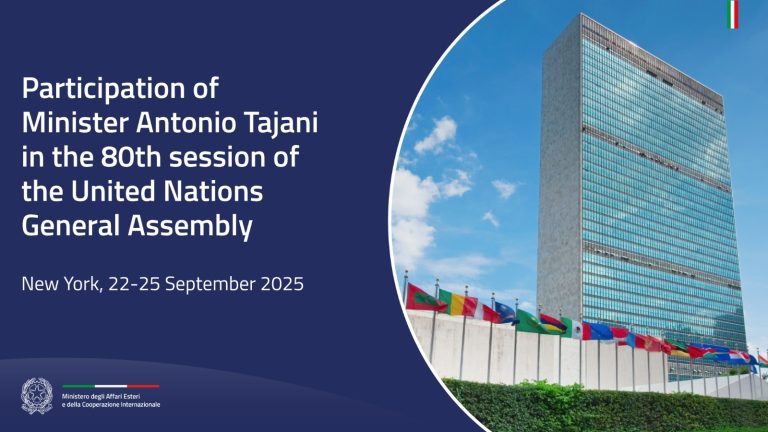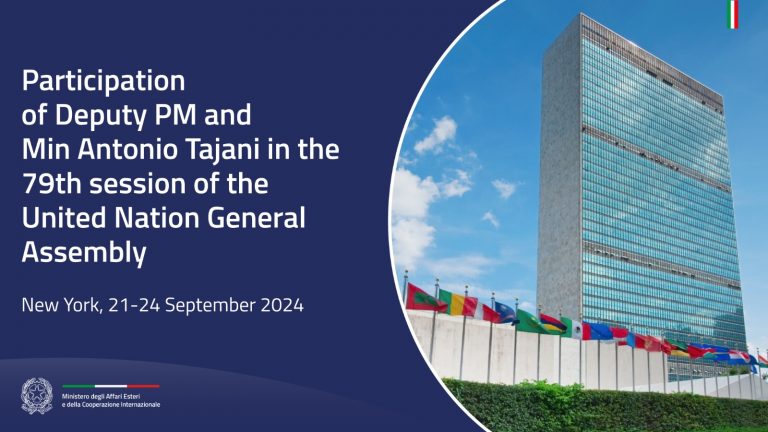Italy’s Minister of Foreign Affairs, the first member of the Meloni government to visit the US, will be at the Security Council one year after the outbreak of the war
A year has now passed since the first sirens sounded. It was on 24 February 2022 when, at dawn, the news went around the world: “War has started, Russia has invaded Ukraine”. For a few weeks it was rumoured to be a lightning conflict and instead, after twelve months and a stalemate with no apparent solution in the short term, more than 100,000 people have died.
Antonio Tajani, Italy’s Deputy Prime Minister and Minister of Foreign Affairs and International Cooperation, is expected at the UN to personally present Italy’s position on the international chessboard. He will be the first member of the government headed by Giorgia Meloni to pay an official visit to the United States.
On 22-24 February the Security Council and General Assembly will meet at the United Nations to take stock of the situation exactly one year after the start of the war in Ukraine. You will come to New York to participate to the meetings in person. What does your presence in the United States mean?
“My visit to New York one year after Russia’s aggression against Ukraine is a clear signal of support for the role that the UN is playing in this crisis, both through the General Assembly’s condemnation of Russian aggression and through Secretary-General Guterres’ efforts to reach an agreement on the export of grain via the Black Sea.
Italy has always played a leading role in supporting multilateralism. It is the leading supporter of Blue Helmets among Western countries and one of the main contributors to the UN budget. Italy also advocates a reform of the UN Security Council aimed at making it more representative, democratic, transparent, accountable, and effective in responding to international crises”.
Italy has announced its largest investment in Libya in the last 25 years in the gas sector and you, together with Prime Minister Giorgia Meloni, visited Tripoli. What do you see for Italy in terms of energy? Have the sanctions imposed on Russia, one year after the conflict, achieved the desired result or has Moscow’s economy been able to withstand the blow in a way that was perhaps not expected?
“In the immediate future, Italy is aiming to strengthen its role as an energy hub in Europe, for the benefit of our country and the EU as a whole, and to become independent from Russian supplies by 2024 by diversifying its sources of supply and improving existing infrastructure.
Thanks to our geographical position, our long-standing friendship with the Mediterranean countries and the expertise of our companies, this government has excelled in putting the Mediterranean back at the centre of the European energy chessboard.
The visit to Tripoli with President Meloni is part of a broader effort by Italy to protect its interests in the Mediterranean – as demonstrated by my recent visits to Cairo, Ankara, and Tunis, as well as President Meloni’s visit to Algiers – and has enabled the Italian energy company ENI to sign an important agreement with the National Oil Corporation (NOC) of Libya”.
At the start of your mandate you said you wanted to be the reference point for Italians living abroad. Given that, when the government was formed, the Ministry for Italians Abroad was not re-established, how do you and the Ministry of Foreign Affairs intend to help Italians living abroad?
“A strong reference point for our compatriots abroad already exists: it is the network of embassies and consulates that provide consular services and assist fellow countrymen in need. We are working to further digitise our services, which will not only save costs but also and above all streamline bureaucratic procedures to the benefit of Italian citizens. In the future, we also plan to make progress with the implementation of e-voting.
In addition to this, we also support Italians abroad through numerous cultural and information initiatives, aimed at disseminating the history of Italian emigration in the countries of destination”.
On 3 February, you met with the President of the Basilicata Region, Vito Bardi, and worked with him to promote the “Turismo delle radici” (“Roots Tourism”) project and boost the return tourism of Italian communities abroad. What do you expect for Italy from a project like this? A return in terms of economy, image or reputation?
“Italy has the privilege of enjoying the great heritage that is its communities abroad, more than 80 million people, which must be valorised and cultivated so that it can last over time and be handed down from generation to generation. These people must be considered as partners of excellence as they are the first ambassadors of our country and the first consumers of Made in Italy products.
Roots travel allows us to create or strengthen a bond with all Italians around the world, also in terms of cultural exchanges and skills that can be created.
We want to create an adequate tourist offer to allow our compatriots abroad and their descendants to experience the Italy of their roots, to allow them to invest in small Italian municipalities, to appreciate them and consider them as a welcoming place to which they can return as often as they wish and in which they can feel at home”.
At the end of January, you had a meeting with UNHCR High Commissioner Filippo Grandi. How is Italy coordinating with the United Nations to deal with the issue of migrants? Should Italians expect firm positions on this issue from a centre-right government?
“Italy’s cooperation with the UN agencies working in this field is fundamental for implementing Italy’s migration strategy which is based on the fight against human traffickers, on legal migration channels and on humanitarian corridors.
Our relations with the UNHCR are excellent and are characterised by a common understanding of the need to provide concrete aid, especially in transit countries. Together with the UNHCR we have already intervened, and will continue to do so, to create alternative opportunities to migration in priority countries for the migration flows”.
Back to the topic of Italians living abroad, it is increasingly evident that Consulates, at least in the US, are having problems with funds for their staff. The cost of living is rising, the euro has depreciated against the dollar, but salaries do not seem to have adjusted to this trend. One way to improve the situation might have been the last budget law, but there seems to have been no significant change of pace. Is this a priority for the Ministry of Foreign Affairs? And if so, what is the strategy to solve this problem?
“The development of our human capital is and must be a priority. Since the early days of the Russian aggression in Ukraine, and the international economic instability that followed, the Italian Ministry of Foreign Affairs has taken concrete measures to support its contract staff, not only in the form of pay rises. We recently introduced the “Assegno per situazioni di famiglia” (Family situations allowance), which reinstated a family support measure for contract staff, from which a wider range of employees, including staff serving in the United States, will be able to benefit.
We are aware of the negative effect that the devaluation of the euro has on the remuneration of US staff. We are assessing how to intervene, in agreement with other ministries”.
The United States insists that the contribution of European countries to NATO is still too low. Is Italy ready to meet the clause requiring that 2% of GDP be allocated to the Atlantic Alliance?
“Italy has always stood out for its commitment and determination within the Alliance. Our credentials are impeccable. We have considerably increased the resources allocated to defence in relation to GDP compared to 2015. Above all, over the years, we have steadily increased the contribution of our country to Alliance operations and missions and to the deployment of its deterrence and defence assets in every operational domain.
Today, we are the leading supplier in terms of manpower to the Alliance’s military activities. We are proud to hold command of its two main out-of-area missions, in Kosovo and Iraq, as well as that of the multinational battle group deployed in Bulgaria. Our land forces are present in Hungary and Latvia; our air forces patrol the skies of the entire Eastern Flank, from Iceland to the Balkans via Poland and Romania; and our naval forces cover the entire Mediterranean basin and participate in all major Alliance activities”.
Do you think there could be repercussions for the government after Berlusconi’s statements on Zelensky?
“The government has a very clear position on the conflict in Ukraine. And Berlusconi is a man of peace who has always been on the side of the West, NATO and the United States. This is proven by concrete facts. Forza Italia has always voted along the same lines. It is a question of understanding which road we must take to achieve a just peace that guarantees the independence of Ukraine”.

